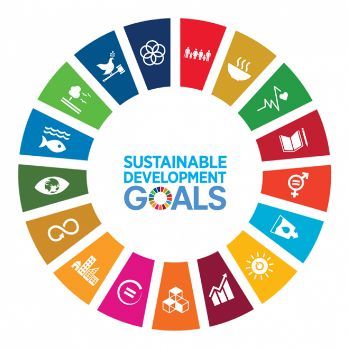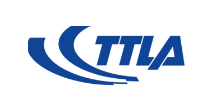Our Commitments
Sustainability
at the group

Sustainability principles
The Group aims to integrate sustainability principles into the overall operational strategy and key performance indicators. Sustainability is understood as an integral part of the Group’s activities, closely linked to its commitments to stakeholders and key strategic directions. The principles of sustainable, responsible and fair business practices applied in the Group are described in Group’s Sustainability Policy and the Code of Conduct for Business Partners.
Key sustainability principles in the Group:
To implement sustainability considering environmental, social and governance aspects of the relevant matters.
When making decisions on the sustainable development of the Group, to take into account the stakeholders’ expectations, respect Group’s obligations towards them, and cooperate in a transparent and honest way.
To keep Group’s activities in line with the European Green Deal and The Paris Agreement’s common objectives on climate change.
To implement the Organization for Economic Co-operation and Development (OECD) guidelines for good governance.
To implement sustainability considering environmental, social and governance aspects of the relevant matters.
When making decisions on the sustainable development of the Group, to take into account the stakeholders’ expectations, respect Group’s obligations towards them, and cooperate in a transparent and honest way.
To keep Group’s activities in line with the European Green Deal and The Paris Agreement’s common objectives on climate change.
To implement the Organization for Economic Co-operation and Development (OECD) guidelines for good governance.
The Group understands the importance of sustainable development and, in the future, seeks to refine the directions of its sustainability strategy even more, creating a framework for the consolidation of responsible business principles at all organizational levels, and their integration into the operational strategy, policies and procedures.
Sustainability management
Sustainability management practices are embedded in the Group’s Sustainability Policy as well as other related Group policies, such as:
Environmental Policy
Anti Corruption Policy
Quality Policy
Occupational Health & Safety Policy
Human Rights Policy
Sustainable Procurement Policy

All Group policies are applicable to all levels of employees and publicly available on Group’s website. All documents are also approved by the highest governance bodies and training is performed to all employees in the related areas.
Management of the environmental, social and economic impact of the Group is supervised by the top management. The board (shareholders) reviews sustainable development strategy once a year to ensure the proper management of impact in each area but are not responsible for reviewing and approving the Sustainability Report or reported information.
Further sustainability management practices, including policy commitments, are embedded and delegated as follows:
i. Appointment of senior executives who hold specific responsibilities for the management of sustainability impacts. These leaders are instrumental in driving the Group’s sustainability agenda and ensuring alignment with strategic goals. These are also the people who review annual Sustainability Reports and reported information.
ii. Delegation to responsible managers and employees: responsibility for sustainability is integrated into the day-to-day activities of our board. The highest governance body delegates key sustainability topics to responsible managers and employees across the organization. This ensures a distributed approach, with various departments and teams actively contributing to the management of sustainability impacts.
The appointed responsible persons report on the results of environmental, social and economic impact management to the board regularly, during weekly, monthly and annual meetings, and present activity reports as required.
The Group’ board shall immediately be informed about critical sustainability matters. In 2023, the Group’s companies had no critical sustainability concerns.
Group management structure and composition
According to the Articles of Association of the Hegelmann Group, the governing bodies are shareholders, the CEO and the executive directors of the companies. All decisions at the Group are made by shareholders and the CEOs, while executive directors perform supervisory and control functions.
EAST DIVISION:
East division (29 companies) is managed by 29 directors and 6 executives who are all employees of the company, of which 3 are women and 3 are men, representing all parties. All executives have competencies relevant to the position and the sector.
CENTRAL DIVISION:
Central division (4 companies) is managed by 4 directors who are all employees of the company, all of which are men, representing all parties. All executives have competencies relevant to the position and the sector.
WEST DIVISION:
The West division is managed by shareholders and the CEOs, executive directors perform supervisory and control functions.

Nomination and selection of highest governance body
Executive directors are appointed by Shareholders. The highest governance body is also a senior executive in the organization. Their functions within the Group are defined in the Group’s Business Conduct.
The performance of the highest governance bodies in overseeing the management of impacts is reviewed once a year – during the annual interviews. All evaluations are based on internal procedures and no independent evaluations are performed.
During the reporting period there were no actions taken in response to the evaluations as there were no matters identified that would imply the need for such actions.
All highest governance bodies occasionally participate in various relevant sustainability training sessions to gain a deeper understanding about the relevant subject matters.
Conflicts of interest
All governing bodies as well as employees, suppliers and representatives of the Group are obliged to disclose information about any situation that may lead to a conflict of interest that may prejudice the Group’s interests in favor of his/her or those close to him/her. Situations, where employees’ personal, family or financial interests could clash with the interests of the Group, must be avoided.
Any conflicts of interest are prevented and mitigated as outlined in Group’s Business Conduct.
In 2023, no conflicts of interest were identified.


Whistleblowing channels and processes to remediate negative impacts
Stakeholders can seek advice and report a wide range of cases and concerns, such as possible or actual misconduct in office or employment, or other breaches that threaten or undermine the public interest, by completing the form on the Group’s website.
Depending on the nature of the violation, the Hegelmann Group shall, by the Group’s procedures, investigate the breach, report it to management and the responsible authorities, and undertake to remedy and/or repair the damage. In the absence of a described process, the Group and companies within shall act by the law.
Effectiveness is measured through key performance indicators, such as the resolution time for reports and the rate of successful remediation. Stakeholder feedback, gathered through surveys, consultations, and other channels, also serves as a valuable metric to evaluate the perceived effectiveness of the mechanisms and processes.
Communication of critical concerns
Any critical concerns are communicated to the highest governance body during the emergency meeting. During this meeting The Emergency Management Plan is activated – the plan of action is outlined and discussed.
During the reporting period no critical concerns have been reported.


Membership associations
The Group is a member of Chamber of Industry and Crafts, Members of the carriers’ association “Lineva’’, International Alliance for Transport and Logistics which helps to further provide and gain industry information and latest insights.



Stakeholder involvement
Continuous engagement with stakeholders, assessing and responding to their expectations, is crucial for the Group’s success in ensuring sustainable operations. The Group’s strategy defines 8 main stakeholder groups:
Clients
Employees
Shareholders and board members
Business partners
Suppliers
Associations
Governments (incl. ministries, municipalities)
Future generations

Stakeholders are defined as groups that find Group’s activities highly relevant and/or are significantly affected by its actions, as well as individuals and organizations that significantly influence the Group and its activities. The Sustainability Report’s content is based on key stakeholders’ views, needs and expectations.



